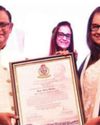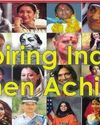
The city needs to find a way to balance between maintaining its traditions as an ancient capital and providing hospitality to tourists. Kyoto residents who feel their daily lives are being oppressed by over-tourism seem to be nearing the limits of their patience.
In early December, the area around a bus stop on the north side of JR Kyoto Station was crowded even on a weekday afternoon. Ordinary Japanese people were quietly walking beside a line of more than 50 foreign tourists waiting for a bus. It seemed as if the area had been mainly designed for tourists, with ordinary people overshadowed.
In a survey conducted last fall by Kyoto City on residents' attitudes toward tourism, many pointed to the negative effects of over-tourism. In response to a question about whether they think that there are people who feel annoyed by crowded conditions on buses and subways due to the presence of tourists, those who "strongly agree," "agree" and "somewhat agree" totalled 90.2 per cent. This high number seems to indicate that nuisances such as tourists leaving trash on the street or dragging large suitcases through narrow alleys have become commonplace in Kyoto.
Kyoto has long been a tourist town, attracting not only regular visitors but also many students on school excursions and children on field trips. Groups of young people dressed in school uniforms can be seen everywhere in the city, and this has not changed even now. Kyoto residents must have felt proud when they saw people gathering to experience the culture of the ancient capital, but now they may be more likely to feel uncomfortable.
Denne historien er fra January 03, 2025-utgaven av The Statesman.
Start din 7-dagers gratis prøveperiode på Magzter GOLD for å få tilgang til tusenvis av utvalgte premiumhistorier og 9000+ magasiner og aviser.
Allerede abonnent ? Logg på
Denne historien er fra January 03, 2025-utgaven av The Statesman.
Start din 7-dagers gratis prøveperiode på Magzter GOLD for å få tilgang til tusenvis av utvalgte premiumhistorier og 9000+ magasiner og aviser.
Allerede abonnent? Logg på

Trudeau not willing to lift Canada's retaliatory tariffs if Trump leaves some tariffs on Canada
Canadian Prime Minister Justin Trudeau is unwilling to lift Canada's retaliatory tariffs on the United States if President Donald Trump leaves any American tariffs on Canada, a senior government official told agencies on Wednesday.

Philippine defence chief warns allies will fight if China restricts flights over South China Sea
The Philippines and its security allies would take measures to counter any attempt by China to impose an air defense zone or restrict freedom of flights over the South China Sea, Defense Secretary Gilberto Teodoro said Wednesday, following confrontations between Chinese aircraft and those of his country, Australia and the United States.

Denmark Rejects Trump's Renewed Push for Greenland to Join USA
Denmark has strongly opposed US President Donald Trump's renewed push for Greenland to join the USA, following his remarks during a joint session of Congress two days ago.

South Korean fighter jets accidentally drop bombs, injuring eight people
Two South Korean fighter jets accidentally dropped eight bombs on a civilian area during a joint live-fire exercise with the American military on Thursday, injuring eight people, officials said.

Tejashwi promises to lift ban on toddy
If the Mahagathbandhan government is formed post-assembly elections 2025, toddy will be excluded from the Bihar Prohibition and Excise Act, 2016, which was notified by the state government to enforce, implement and promote complete prohibition of liquor and intoxicants in the state.

Dissecting a diplomatic disaster
The heated exchange in the White House on February 28 between US President Donald Trump, Vice President JD Vance and Ukrainian President Volodymyr Zelenskyy shocked the world.

Trump Must Be Isolated
After the public spat that President Donald Trump had with President Zelenskyy of Ukraine, a few facts emerge.

Omar questions govt's silence on China-occupied J&K territory
BJP fragmented Maharaja Hari Singh's legacy by splitting Jammu and Kashmir into two UTS: CM

Empowering Journeys Illuminate Women's Day
Mental healthcare pioneer psychotherapist Dr Minu Budhia (founder, Carring Minds International) was felicitated by St. Xavier's College for her exemplary work in mental health. Seen in the picture Principal of St. Xavier's College, Rev. Father Dominic Savio and Dr Minu Budhia

Metaphorical Slaps
We can't ignore that we all at some point or other felt the string of metaphorical slaps from this society itself — being dismissed in meetings, having our ideas appropriated by male colleagues, being labeled 'too aggressive' for merely speaking up. The hierarchy is clear: men lead, and women follow. If we resist, we are not just questioned — we are cast aside